After an exhaustive judging process, the first winner emerged victorious from the hundreds of entrants in the Bank of Scotland Corporate and Property Week’s £30m Search for Property Entrepreneurs.
The winner: Native Land
Alasdair Nicholls, chief executive of Native Land, and his team walked away victorious, with £10m interest free for three years.
Last Wednesday was a gruelling day of judging for the five entrepreneurs who made it to the south England and Wales final of the £30m Search for Property Entrepreneurs. Each of the finalists faced a 40-minute session with the judges, then headed to an evening event hosted by TV presenter Katie Derham, held at the Great Hall at Lincoln’s Inn in London. The day concluded with Nick Robinson, managing director of real estate at Bank of Scotland Corporate, announcing Native Land the winner.
He said Native Land had ‘set up five years ago with just a few hundred thousand pounds’.
Nicholls founded Native Land, a residential and mixed-use developer in central London, with new business director, Jonathan Mantovani, in 2003.
‘I found [the judging process] an exciting experience. I really enjoyed it. It was a rewarding exercise that tested my knowledge,’ said Nicholls immediately after his session with the judges. ‘There were plenty of tough questions and serious faces.’
Unlike some of the other finalists, Nicholls chose not to give a stand-up PowerPoint presentation, instead sitting down to discuss his proposals at the judging table.
Native Land’s developments under way include Project Bankside, a £400m scheme in a joint venture with Grosvenor, comprising 229 flats in five buildings next to the Tate Modern gallery on the South Bank in London.
Pretax profits from its existing schemes, which also include Bishops Square at Spitalfields in east London and 8 Albert Embankment in south London, are predicted to be more than £27m by 2013.
‘We are well placed to take advantage of the current market,’ said Nicholls.
‘We would like to invest in new opportunities that would create returns in the medium term. It’s a tough market, but potentially the best land-buying market we have had in London for nearly 20 years.’
He added that the £10m interest free would mean that Native Land could be a ‘standalone business’ that would be able to place less emphasis on joint venture partnerships in future, and ‘broaden our reach’.
Judge Graham Stanley said that Native Land won because the judges felt the funding would enable Alasdair Nicholls to ‘take the business forward’. It would enable Native Land to cut back on joint ventures and ‘look at deals in its own right’, he added.
Nicholls is the ultimate redundancy success story. ‘He set up Native Land, having been made redundant by Taylor Woodrow,’ said Stanley.
He worked for Taylor Woodrow for 14 years, 11 of those as managing director of Taylor Woodrow Capital Developments.
‘I guess we will probably get a lot of calls tomorrow from people who know we’ve got a £10m interest-free loan to spend,’ said Nicholls, but added that he and his colleagues would be spending the money with caution.
His advice to other would-be entrepreneurs is ‘give it a go’.
His number one tip is to ‘get good people around you – people from within the industry who are respected and intelligent’.
Other finalists
Cathedral Group
First up in front of the judges was Cathedral Group, whose chief executive Richard Upton made the presentation from its own gothic-style lectern.
‘We realised the judges would be in the room from 9.30 am to 4.30 pm, so we needed to wake them up,’ explained Upton.
Upton described Cathedral Group as a ‘niche’ developer with two business streams, public-private partnership (PPP) projects and special projects. Upton founded the firm with business partner Barry Bennett in 1991, and soon began working in the PPP field. An example of its ongoing PPP work is its £75m mixed-use regeneration scheme Clapham One in south London.
‘We should win the property search because we will use the money to improve people’s lives, building swimming pools and libraries at no cost to the taxpayer,’ said Upton.
The money could also have been used to invest in future special projects. Existing schemes include the £60m Sundridge Park, a hotel and conference centre in Bromley, Kent.
Speaking after his 40 minutes in front of the judging panel, Upton described the experience as ‘nerve-wracking’, but worth going through in order to win the funding. ‘It’s not easy for anyone to get £10m debt,’ he said.
Neptune Property Developments
Irish cousins Creighton Boyd and Patrick Heffron founded Neptune Property Developments in 2001. Both in their early thirties, they are the youngest entrepreneurs to make the south England and Wales final.
Based in London, they specialise in urban regeneration and have completed 35 projects, mainly in east London. The company specialises in commercial and residential developments on sites such as the 6 acre Neptune Wharf site at Wyke Road in east London.
Boyd and Heffron’s entrepreneurship dates back to their university days. They started investing in residential properties in 1998, while still studying. Boyd trained in real estate, having studied it at Northumbria University. Heffron took a different route – he is a qualified dentist.
Speaking after their session with the judges, Heffron said he hoped he and Boyd had shown their ‘strong business partnership and entrepreneurial spirit over the last 10 years’.
He explained that, if Neptune won the £10m interest free, it would use it as an ‘opportunity to acquire assets at a level that is significantly below their market value’.
‘It would allow us to grow our business and acquire further brownfield regeneration sites.’
Tolladine Estates
After emerging from the judging room, Simon Waterfield of Tolladine Estates, which invests in industrial and office property around the UK, said that he should win the £10m interest free for three years because of his ‘diverse and substantial’ 1.2m sq ft portfolio.
Listing Tolladine’s vital statistics, Waterfield explained that on top of this property portfolio, it owns 250 acres of development land.
‘We are very lowly geared with £4.4m on the rent roll,’ he added.
If Tolladine Estates were to win, Waterfield said it would ‘stick to the formula’ and continue to buy ‘large chunks of industrial property’, similar to the City Parkway trade park scheme in Sheffield he bought in 2006.
Tolladine was in a good position to take advantage of the current market, he said.
‘It is extremely exciting. I am actually delighted the downturn has happened. There has been so much froth [in the market]. For the last three or four years you had to buy vacant property to get value.’
Waterfield said he grew more comfortable in front of the judges as time went on. ‘I felt under control and enjoyed it,’ he said.
During his presentation he ‘explained the importance of hiring the right people’, and highlighted the importance of understanding occupiers’ needs.
Urban Space Holdings
Eric Reynolds, founder of Urban Space Holdings, revealed that he thought that his company was ‘possibly the wild card’ in the competition.
Urban Space Holdings specialises in regeneration projects, and is innovative in its approach to development. Its Container City System, for example, uses sea containers in the construction of low-cost modular prefabricated buildings.
The company is experienced and has been operating for more than 30 years. It also has a strong track record, as the developer behind the regeneration of London attractions such as Camden Lock in north London and Gabriel’s Wharf on the South Bank.
‘We should win the funding because what we do is sustainable,’ explained Reynolds.
He said that Urban Space Holdings was able to quickly build long-lasting buildings. For example, its offices at Trinity Buoy Wharf were constructed in 15 days.
A proportion of the £10m interest-free funding would have been used to further its Inhabited Bridge project, 92 flats that span the River Lea at the gateway to the Lea Valley in east London.
What happens next?
The competition closed on 9 June and the judges will pare down the hundreds of entries for the remaining regional finals:
22 October Midlands and East Anglia
3 November Scotland and north England
The three regional winners will each receive an interest-free loan of up to £10m. The national winner will also win four days of mentoring with Prestbury Group’s Nick Leslau (pictured), chairman of judges. The national final is on 4 December.
Acquisition talks are taking place between HBOS and Lloyds TSB. It is business as usual across all areas of Bank of Scotland, including the £30m Search for Property Entrepreneurs. www.thebossearch.co.uk
The judges
- Graham Stanley, chief executive of Moorfield Group
- Ray Robinson, head of real estate England and Wales, Bank of Scotland Corporate
- Jerry Perritt, head of real estate London, Bank of Scotland Corporate
- Edward Wojakovski, executive chairman of Tonstate Group
- Nick Robinson, managing director of real estate, Bank of Scotland Corporate
- Andy Rothery, a partner at Deloitte
- Giles Barrie, editor of Property Week
Postscript
Photographs by James Winspear
Original print headline: On to a winner
























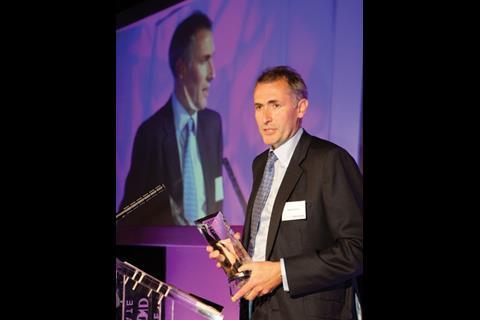
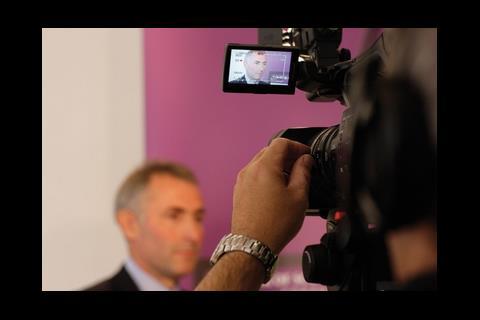


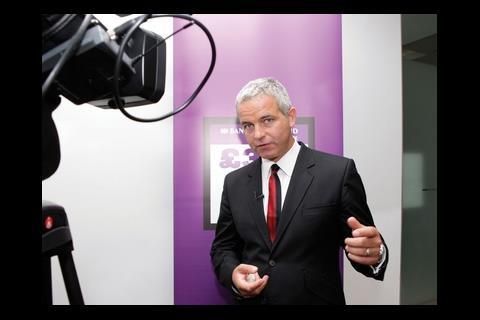
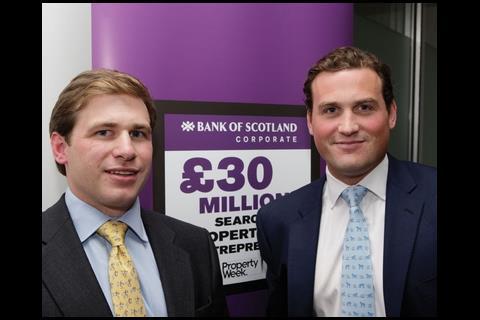
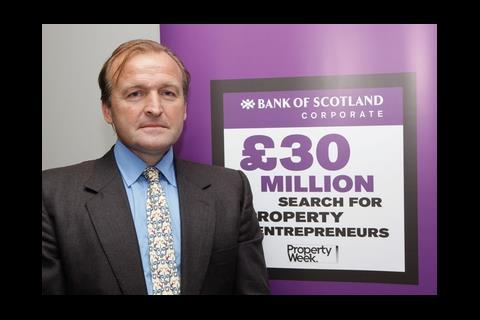
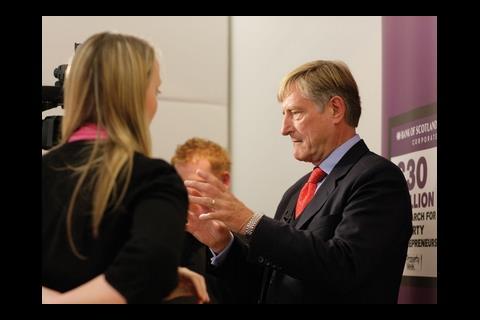
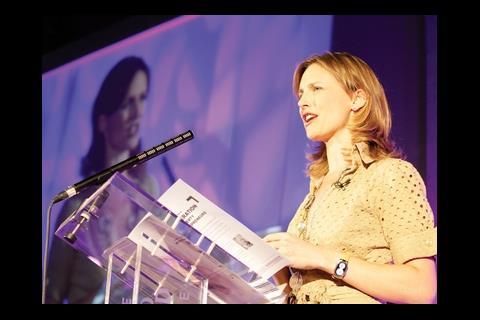
No comments yet